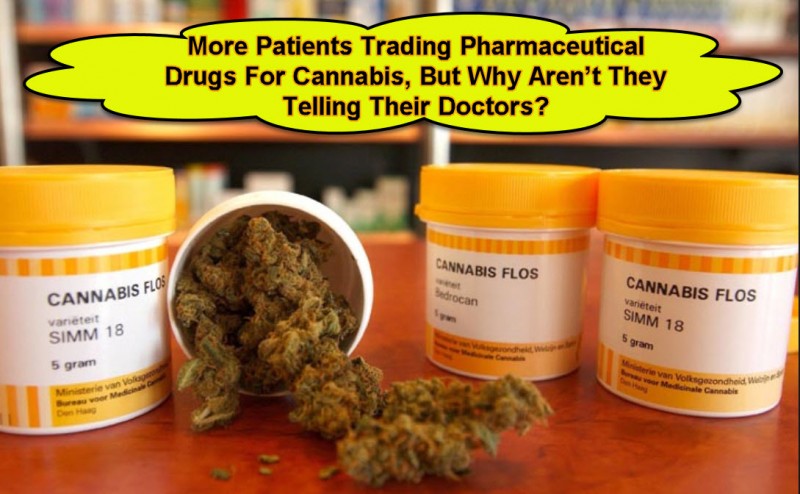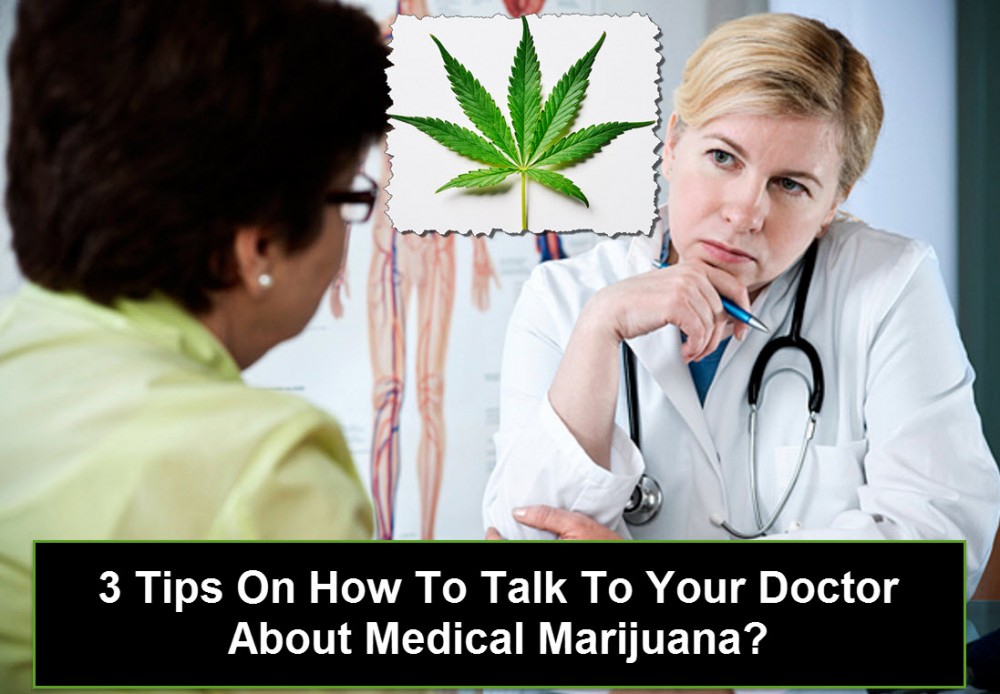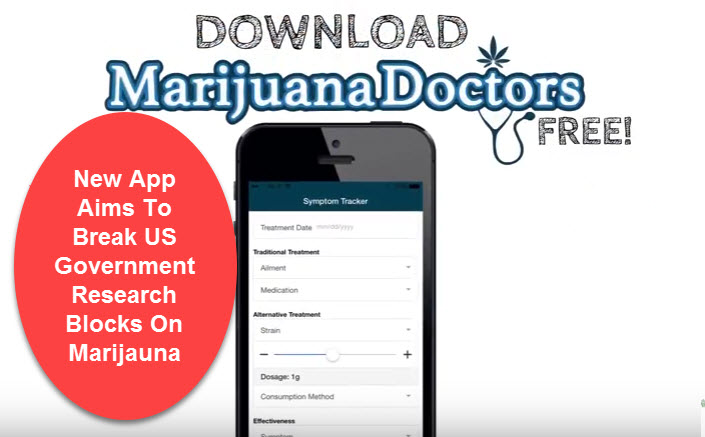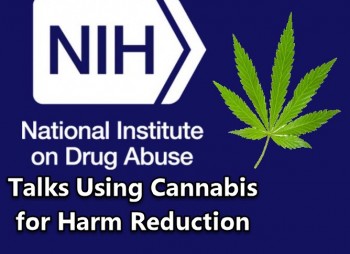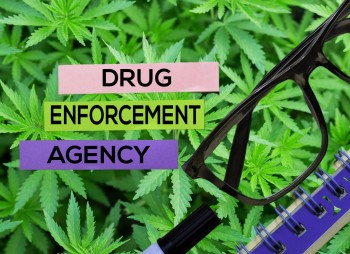More Patients Trading Pharmaceutical Drugs For Cannabis, But Why Aren’t They Telling Their Doctors?
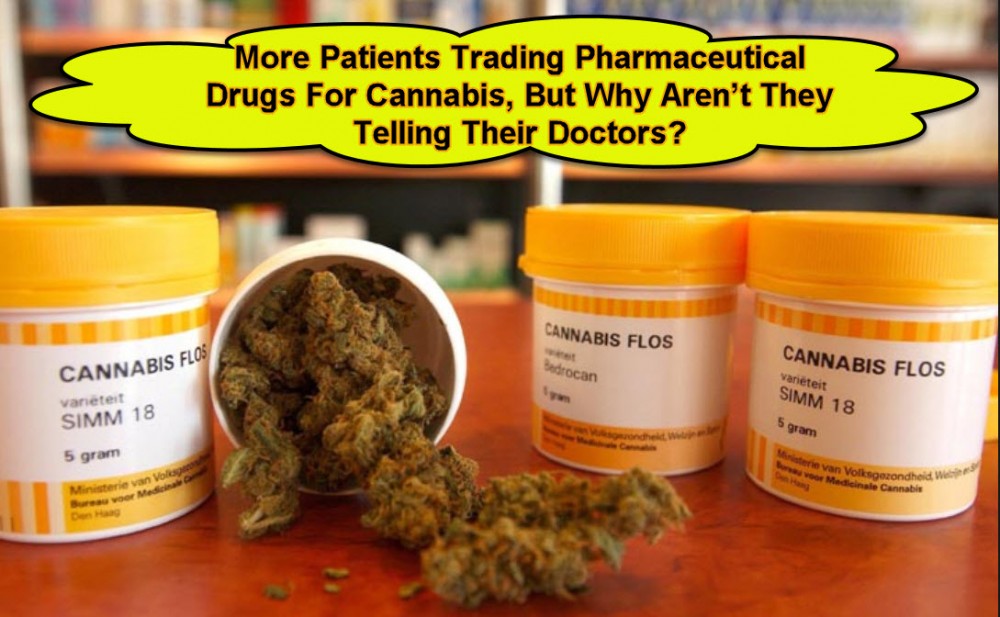
As cannabis continues to be legalized throughout the nation, we’re continually seeing more people using cannabis on a regular basis, even swapping their regular pharmaceuticals for it.
However, a new survey from the University of Michigan Institute for Social Research revealed some interesting findings, such as patients choosing not to disclose their cannabis use to doctors. Researchers gauged input from 450 adults who currently consume cannabis, and among them, 78% admitted to using cannabis for treating a health condition. Among the most common conditions they used cannabis for included chronic pain, anxiety and depression, menstrual cramps, PTSD, and headaches. They also use cannabis for addressing the side effects of chemotherapy, as well as nausea among HIV patients.
Almost half of the respondents even admitted that they quit using pharmaceutical medications, and 38% say that they have reduced their pharmaceutical drug intake since using cannabis. Participants say that they trust cannabis more than conventional medications, giving cannabis a better score in terms of its efficacy, availability, cost, and side effects.
Surprisingly, many patients also choose not to disclose their cannabis use to their doctors. Some 30% of the participants admitted that their healthcare provider or doctors have no clue they’re using cannabis. According to the study’s authors, only very little was understood when it came to the participants’ mindset on the drug. “Given the state of the science of medicinal cannabis, even basic information about users’ attitudes and behaviors would be helpful,” they write. Clearly, the information gathered from the survey indicate that patients trust cannabis more than pharmaceutical drugs and they are able to enjoy relief from their conditions with the plant, so much so that it’s driven them away from using other kinds of drugs. Meanwhile, their doctors have no clue.
The authors say that these attitudes are crucial to helping shape public policy especially now while cannabis is still illegal at the federal level. “Given the growing use of cannabis for medical purposes and the widespread use for recreation purposes despite criminalization, the current public health framework focusing primarily on cannabis abstinence appears obsolete,” writes study co-author Daniel Kruger. “With people using weed to improve their health – even as they turn away from pharmaceuticals, ‘just say no’ is no longer useful advice.”
Cannabis Education A Priority
It has become clear that we have a very long way to go in terms of cannabis education for the medical industry – as well as for the general public. Despite the current progress of legalization, much remains to be desired when it comes to the knowledge of cannabis and how it works as medicine.
Is there really not enough scientific data to help doctors and patients grow more confident about the drug?
Well, for one thing, while there are quite a number of scientific studies on cannabis, in terms of quantity it isn’t enough. This is because cannabis is a Schedule 1 substance; this classification severely limits the opportunities available to study cannabis, restricts scientists’ access of the drug, and makes funding for studies difficult.
As a schedule 1 substance, cannabis is basically a drug considered to have “no accepted medicinal use”, and it doesn’t matter if cannabis has been used since antiquity as a natural medicine. In the USA, the careers of scientists are largely dependent on funding. The government is the #1 source of funding for science research, and if the government doesn’t want to subsidize cannabis research, this is going to have a serious impact on the medical community as well as patients.
Additionally, many of the studies that DO exist today are inconsistent. Sure, there’s a growing mountain of evidence including both human and animal studies that cannabis can work. But there’s also research that shows how the THC in cannabis actually induces paranoia, anxiety, and psychosis. Add to that the data showing how drastically THC levels have increased in the last two decades, and you’ve got the perfect storm to scare doctors enough from recommending cannabis to patients.
The stigma surrounding cannabis use still haunts doctors. Additionally, for doctors who don’t feel confident or don’t have the knowledge to recommend cannabis, the risk of losing their license because cannabis is still illegal at the federal level makes them even more wary of the drug. Keep in mind that no physician has ever had their license stripped away for prescribing opioids.
Last but not least, patients can’t just mix cannabis and opioids or other medications. Interactions and potential side effects can occur – you have to pick one, and if you pick opioids, that’s a very deadly decision.
OTHER STORIES YOU MAY ENJOY...
HOW TO TALK TO YOUR DOCTOR ABOUT WEED, CLICK HERE.

